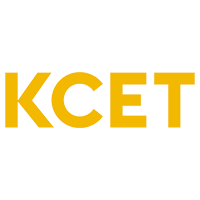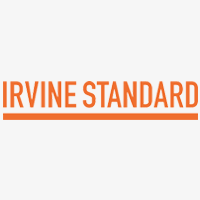Media Watch
Startups & Innovations - New Hires
Orange County Business Journal -
Vialase Inc., an Aliso Viejo glaucoma-focused medtech startup, has hired executives to its board and C-suite. … The company’s CEO, Tibor Juhasz, previously cofounded Irvine medtech company IntraLase, which harnessed similar laser technology. Juhasz is currently a biomedical engineering [and ophthalmology] professor at University of California, Irvine. [Subscription required, you can request an electronic copy of the article by sending an email to communications@uci.edu.] Read More
Startups & Innovations - Funding
Orange County Business Journal -
ValVention Inc., an Irvine cardiovascular device company, received a $350,000 grant from the National Institutes of Health (NIH). The funding supports the study of ValVention’s FoldaValve, a transcatheter aortic valve replacement (TAVR) system, which can help restore blood flow to patients suffering from aortic valve stenosis – a disease in which the heart valve narrows and reduces blood flow to the body. … The device originated at California Institute of Technology and was developed at University of California, Irvine by Professor of [Biomedical] Engineering and Medicine Arash Kheradvar. [Subscription required, you can request an electronic copy of the article by sending an email to communications@uci.edu.] Read More
Sick Beats: Using Music and Smartphone to Attack a Biosafety Room
Hackaday -
As it turns out, perhaps one who has read a new paper on the potential for hacking biosafety rooms using music. The work was done by University of California Irvine researchers [Anomadarshi Barua], [Yonatan Gizachew Achamyeleh], and [Engineering Professor Mohammad Abdullah Al Faruque], and focuses on the negative pressure rooms found in all sorts of facilities, but are of particular concern where they are used to prevent pathogens from escaping into the world at large. Read More
Best of Last Week—New map of universe, smart home vulnerabilities and young people at risk of hearing loss
Science X -
In technology news, a team of researchers at the University of California, Irvine, discovered a way to use music to trigger a deadly pathogen release—a finding that showed that people working in negative-pressure rooms could be easily put at risk by criminals using smartphones. Read More
A Southern California town reckons with its disappearing beaches
MarketPlace -
Sand helps buffer the coast from storms …. It keeps the waves from digging into the base of coastal bluffs. So what happened to all that sand? The ocean has been sucking up sand faster than it can be replaced, according to Brett Sanders, a professor of civil and environmental engineering at the University of California, Irvine. Besides storm surges and sea-level rise, there’s also an inland side to the problem, he said. “We’ve kind of been slowly starving our coasts of the sediment supply that it needs to be healthy and resilient,” Sanders said. Read More
GATC Aims to Slash Time for Drug Testing
Orange County Business Journal -
An Irvine-based startup [GATC Health Corp.] is trying to convince investors that it can use artificial intelligence to dramatically reduce the time needed to show if a drug can work in a clinical trial. … In addition to landing a sizeable amount of funding, the company has attracted several notable board members, advisers and employees, and has close ties to researchers at the University of California, Irvine. … “Their scientific leadership are incredibly intelligent individuals who have experience in the field,” Dr. Jonathan Lakey, a professor emeritus in surgery and biomedical engineering at UCI, told the Business Journal. … GATC announced a partnership with Dr. Christie Fowler, an [associate] professor of neurobiology at UCI, for pre-clinical programs to determine the novel drug candidates’ safety and efficacy in reducing opioid consumption, withdrawal symptoms and relapse. [Subscription required, you can request an electronic copy of the article by sending an email to communications@uci.edu.] Read More
Is This Experimental Green Suburb the Future of Single-Family Housing?
Bloomberg -
Some homeowners will have one more option during a blackout: using their car to charge their house. … These homeowners can participate in a three-year trial to lease Kia EV6 crossovers imported from South Korea that have bi-directional batteries, according to Scott Samuelsen, [Founding Director, Advanced Power and Energy Program and a] professor of mechanical, aerospace and environmental engineering at UC Irvine, which will design and manage the experiment. Read More
What is hydroelectric energy and how does it work?
The Conversation -
Brian Tarroja, UCI associate professional researcher and lecturer of civil and environmental engineering writes, “Hydropower facilities capture the energy in flowing water by using a device called a turbine. As water runs over the blades of a turbine – kind of like a giant pinwheel – they spin. This spinning turbine is connected to a shaft that spins inside a device called a generator, which uses an effect called induction to convert energy in the spinning shaft to electricity.” Read More
L.A.'s Major Flood Risk Much Higher Than Previously Thought, New Study Says
KCET -
And it may not just be L.A. County that is vastly underestimating its flood risk: "Across the U.S., we witnessed one city after the other get hit by flooding and be seemingly unprepared for the amount of flooding that happens," said Brett Sanders, a professor of civil and environmental engineering at UC Irvine and the study's lead author. In addition to noting the increased risk, Sanders said it is crucial to understand who within a community is most exposed to these types of events and may face the longest road to recovery. Read More
Thousands of opportunities
Irvine Standard -
Elizabeth Chiu first got interested in mechanical engineering as a member of her high school, all-girls robotics team. But it was only after she enrolled at UC Irvine that she discovered her dream job. Chiu, 21, and now a senior UCI student, recently accepted an offer to join the R&D Released Product Engineering department for Medtronic Neurovascular in Irvine, the world’s largest neurovascular company. Medtronic had previously hired her as an intern for two consecutive summers, in addition to six months of part-time work during her junior year. “I’m so excited that I get to work with the same team I’ve worked with over two years,” she says. … UCI was one of Chiu’s top choices for college, she says, adding, “It’s such a pretty area, and the school has a great engineering department, with lots of opportunities for internships.” Read More








